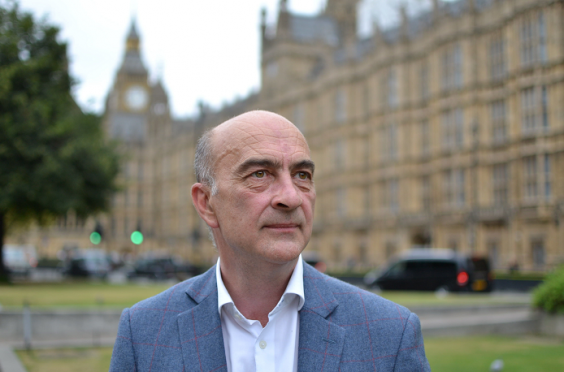“It is on the table…It’s likely….Highly likely….Even more likely…Undoubtedly more likely…Looming…Next year….Bring it on.”
These are all recent quotes from leading Nationalist lights.
They refer, of course, to the supposed inevitability of Indyref2. But is it inevitable?
I’m not so sure.
During this Scottish political conference season, the talk is of little else. It is an issue that has been bubbling away ever since that fateful day in June last year.
Three hours after the narrow vote by the UK to leave the EU, those who believe in a separate Scotland started the Indyref bandwagon rolling again. Brexit is bad. Independence is the answer.
They correctly point out that Scotland said No to walking out of the EU. It was, they claim, a game changer. Indeed it should be a country changer.
And they would say that. An independent Scotland is their core belief. It runs through their world view like a slogan in a stick of rock. It is their overriding political goal. And, in pursuit of that single-minded obsession, every avenue must be explored. Each situation must be exploited. We must have Indyref2.
And who can blame them for being true to their beliefs? Indtref2 must happen. And soon. Simples.
Except….
Except that, if polls are to be believed, two things have happened.
There has been a switch, by some, from No to Yes for independence, but matched by an equal move the other way. Overall, Scotland is as it was in 2014.
But just as tellingly, poll after poll reveals that Scotland does not want indyref2, at least not anytime soon.
Why?
Because any future debate about Indy would boil down to a choice between which union: EU or UK?
And there are many in Scotland who, when faced with that choice, have reappraised their stance – but it has been two-way traffic.
And there is undoubted voter fatigue. Year after year and election after election, referendum after referendum have meant Scotland has been in a permanent state of campaigning for the last few years. Just when one vote is decided, along steams the next one. Has the country had enough turmoil and uncertainty?
Added to which Brexit might have been decided – but the outcome and the uncertainty of what it will finally mean will be around for a few years more. Many in the persuadable middle argue that Brexit is a severe slap on the cheek to Scotland’s economic prospects – but wouldn’t be helped by a kick in the teeth by exiting the even bigger UK market. To exit one Union is unfortunate, but to exit two?
And so those who want an Independent Scotland are stuck on the horns of a dilemma. Brexit has changed things, but overall the public’s view hasn’t. The troops demand a vote, but the public don’t want one. At least not now.
The Scottish Government doesn’t want to unequivocally call one – and the UK Government won’t answer whether they would back it or block it if one is called.
We have reached separation stalemate.
So what happens next? Who blinks first? Will one be called and what will be the response?
And this is when the public mood matters. A wrong call will put one side or another on the wrong side of history. In poker parlance, the stakes are high. To up the ante and go “all in” or to fold and wait for another hand on another day?
That is why there is nothing inevitable about indyref2 being called.
It is why both sides might decide that now is not the time.
For Unionists, because now is never the right time. For Nationalists, because calling another referendum and hacking off the middle ground is preferable to disappointing their fundamentalists who will vote yes whenever the question is asked. It may well suit them to let the Brexit dust settle and then see where we are.
So for both sides, it could well be a case of “Never say never again. But just not now.”
Change is in the air
Dementia is a cruel and brutal illness which we associate with the onset of older age.
But the number of under-65s in Scotland being treated for dementia has risen by a third in the past six years.
Although the number under pension age is a minority of the total, at 808 cases last year it demands a serious rethink of who we help and who can get free care.
Because, as we now know, dementia can strike people as young as in their teens.
That is why there is growing support for the Frank’s Law campaign, launched in memory of former Dundee United footballer Frank Kopel. Its backers want to allow those under 65 with illnesses like dementia to be able to access free care which, at present, is only on offer to those above that age.
Francis’s wife, Amanda, now tirelessly campaigns for such a change. Her energy is astounding. Her resolve absolute. Her tenacity a force to be reckoned with.
And her support is growing.
So much so that newspapers are behind her and MSPs are rallying to her cause. Change is in the air.
Miles Briggs, the Conservative MSP and spokesman for mental health, is ready to table a Member’s Bill at Holyrood if the Scottish Government won’t make the needed change themselves.
I briefly met Amanda on Saturday. I can barely imagine what she and others like her have had to endure as they see those they love struck down with this horrific illness. Especially in their apparent prime.
So, I’m backing Frank’s Law. How about you?
